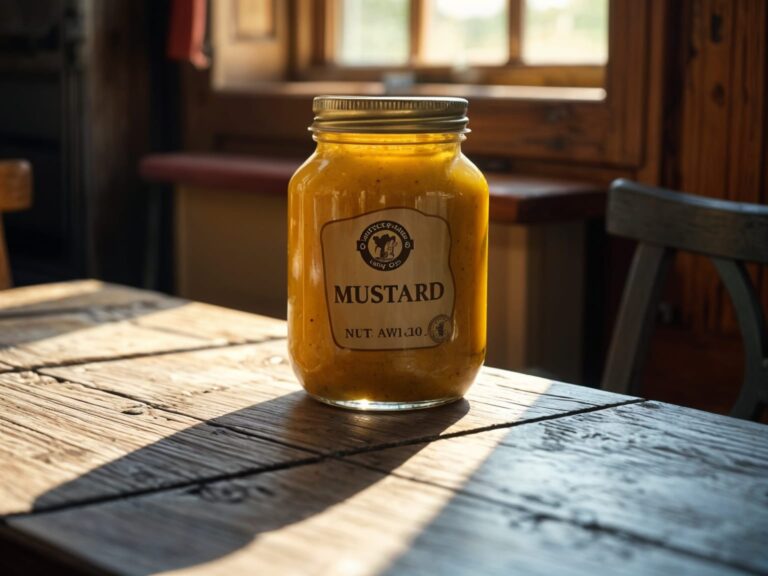We all know mustard as that tangy yellow condiment that adds zing to hot dogs and hamburgers. But this humble seed-based spread has been quietly delivering health benefits for thousands of years. From ancient Roman medicinal preparations to modern nutritional science, mustard has consistently proven itself to be more than just a flavor enhancer.

A Nutritional Powerhouse in a Small Package
Before diving into the specific health benefits, it’s worth understanding what makes mustard so special. Mustard seeds, whether yellow, brown, or black, contain a remarkable concentration of nutrients. These tiny powerhouses are packed with minerals like selenium, magnesium, and phosphorus, along with B vitamins and beneficial plant compounds. When ground and mixed with liquid (usually vinegar, water, or wine), these seeds release their full potential.
Antioxidant Protection
One of mustard’s most significant health contributions comes from its impressive antioxidant content. The seeds contain compounds like sinigrin, myrosinase, and allyl isothiocyanate that help neutralize harmful free radicals in the body. These free radicals can damage cells and contribute to aging and various diseases, including cancer. Regular consumption of antioxidant-rich foods like mustard may help reduce this oxidative stress.
Fighting Inflammation Naturally
Chronic inflammation lies at the heart of many modern health problems, from arthritis to heart disease. Mustard contains powerful anti-inflammatory compounds that may help calm this internal fire. The selenium in mustard seeds plays a particularly important role in reducing inflammation and enhancing immune function. For centuries, mustard plasters were applied topically to reduce joint pain and inflammation—a traditional remedy with scientific backing.
Digestive Health Support
If you’ve ever noticed how mustard can clear your sinuses, you’re experiencing the same compounds that stimulate digestive juices. Mustard enhances the production of saliva and digestive enzymes, potentially improving digestion and nutrient absorption. These stimulating properties explain why mustard often accompanies heavy or fatty foods—it actually helps break them down more efficiently.
Respiratory Relief
Those same pungent compounds that give mustard its characteristic kick can help clear congestion. Traditional remedies have long utilized mustard’s warming and expectorant properties to treat coughs, colds, and congestion. While modern medicine has created more targeted treatments, there’s a reason grandmothers still recommend mustard plasters for chest congestion—they work by increasing blood flow to the area and helping to loosen mucus.
Blood Sugar Regulation
Some preliminary research suggests that mustard might help improve insulin sensitivity and regulate blood sugar levels. The mechanism isn’t fully understood, but it may be related to certain compounds in mustard seeds that affect how the body processes glucose. While more research is needed, adding mustard to carbohydrate-rich meals might help moderate the blood sugar response.
Heart Health Benefits
The omega-3 fatty acids found in mustard seeds contribute to its heart-healthy profile. These essential fats help reduce inflammation, lower triglycerides, and may help maintain healthy blood pressure. Combined with mustard’s antioxidant properties, these effects make it a surprisingly beneficial condiment for cardiovascular health.
Antibacterial Properties
Long before refrigeration, mustard was used as a preservative—and for good reason. The same compounds that give mustard its pungent flavor also have natural antibacterial qualities. These properties made mustard useful in traditional medicine for treating minor infections and preventing food spoilage.
Calorie-Conscious Condiment Choice
In a world of calorie-dense sauces and spreads, prepared mustard stands out as a remarkably low-calorie option. Most varieties contain just 5-15 calories per tablespoon, compared to around 90 calories in the same amount of mayonnaise. This makes mustard an excellent choice for adding flavor without excess calories.
Incorporating More Mustard Into Your Diet
The beauty of mustard lies in its versatility. Beyond the familiar yellow variety, explore spicy brown mustards, whole grain preparations, or even make your own by mixing ground seeds with vinegar and spices. Use mustard as:
- A marinade base for meats and vegetables
- A salad dressing ingredient (mixed with olive oil and herbs)
- A flavor booster for roasted vegetables
- A sandwich spread instead of mayonnaise
- A sauce ingredient for nearly any cuisine
A Note of Moderation
Like any food, mustard is best enjoyed as part of a varied, balanced diet. While it offers impressive health benefits, it’s not a miracle cure. Those with thyroid issues should consult their healthcare provider, as large amounts of mustard seeds may affect thyroid function due to their goitrogenic compounds.
The next time you reach for that jar of mustard, you can appreciate that you’re not just adding flavor—you’re adding a dash of health benefits that have been valued across cultures and throughout history. This humble condiment truly deserves its place at the table not just for its taste, but for its remarkable health-supporting properties.
Hey there! We hope you love our fitness programs and the products we recommend. Just so you know, Symku Blog is reader-supported. When you buy through links on our site, we may earn an affiliate commission at no extra cost to you. It helps us keep the lights on. Thanks.
Disclaimer: The information provided in this discussion is for general informational and educational purposes only. It is not intended as medical or professional advice. Only a qualified health professional can determine what practices are suitable for your individual needs and abilities.


